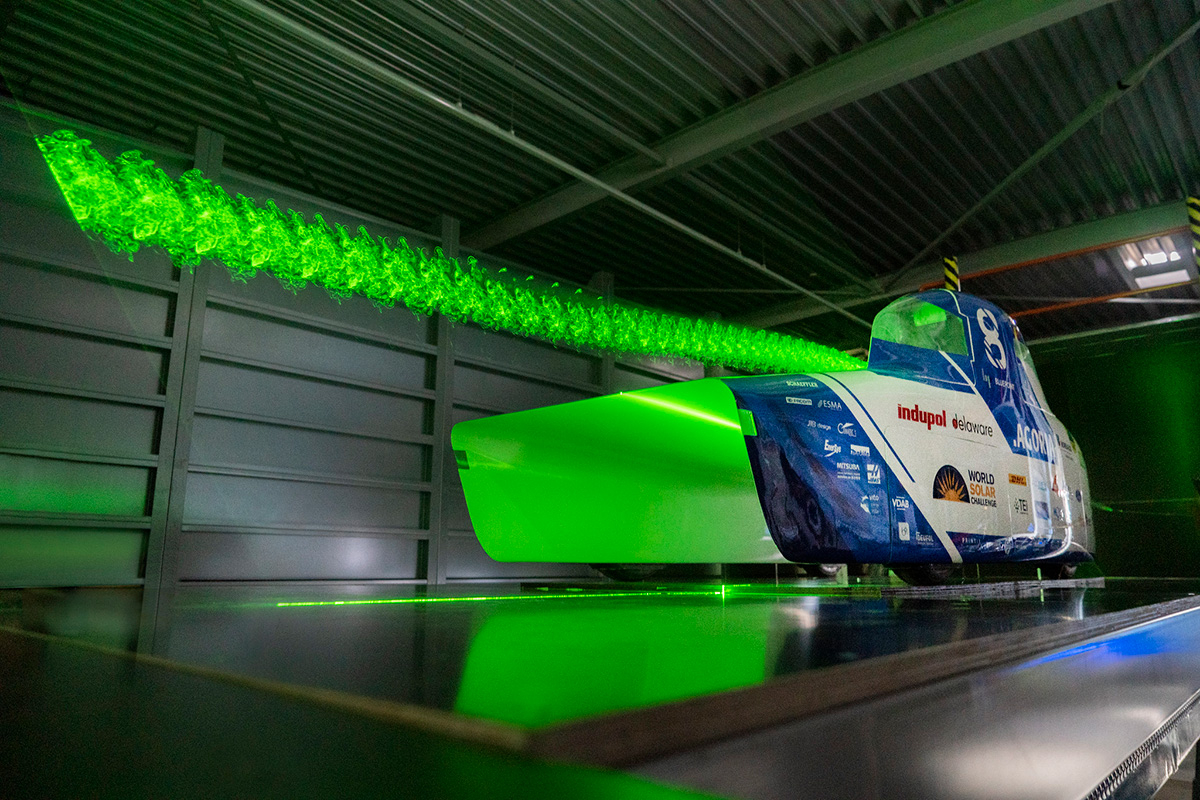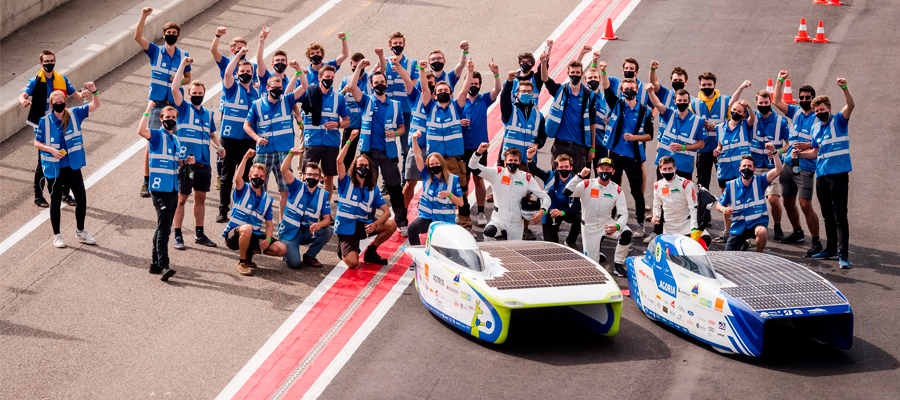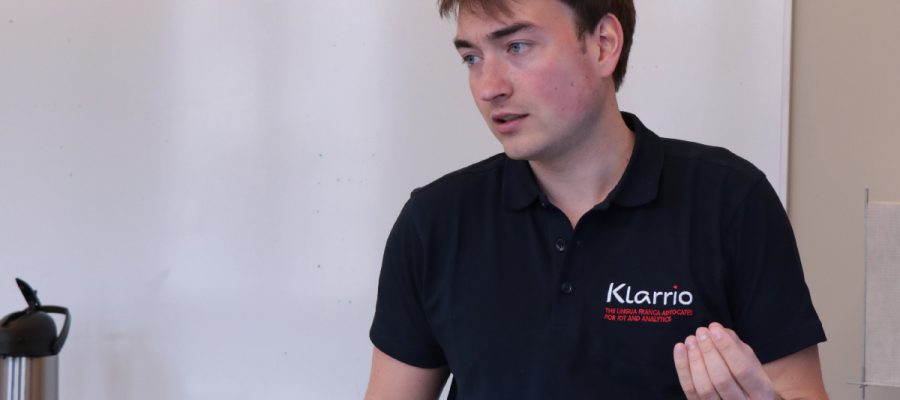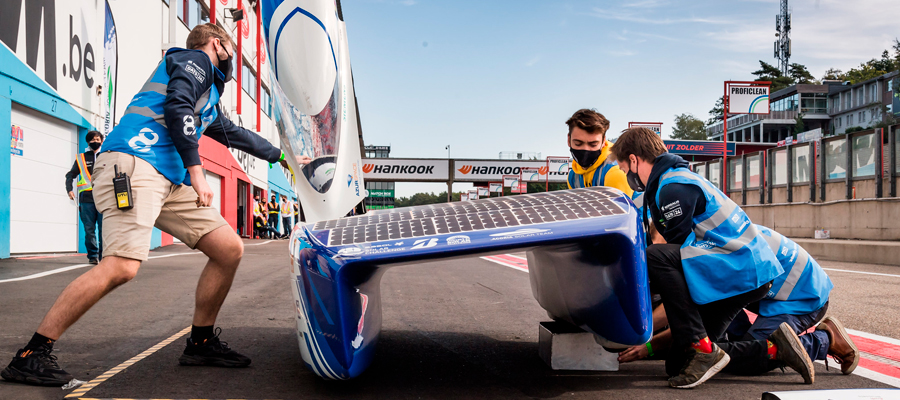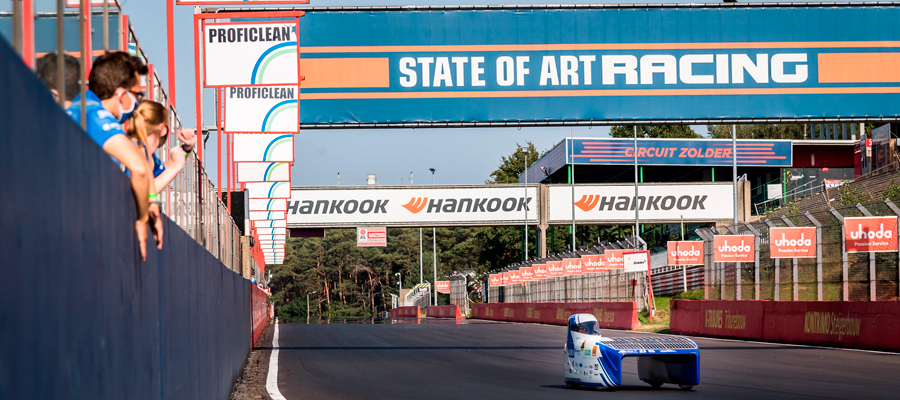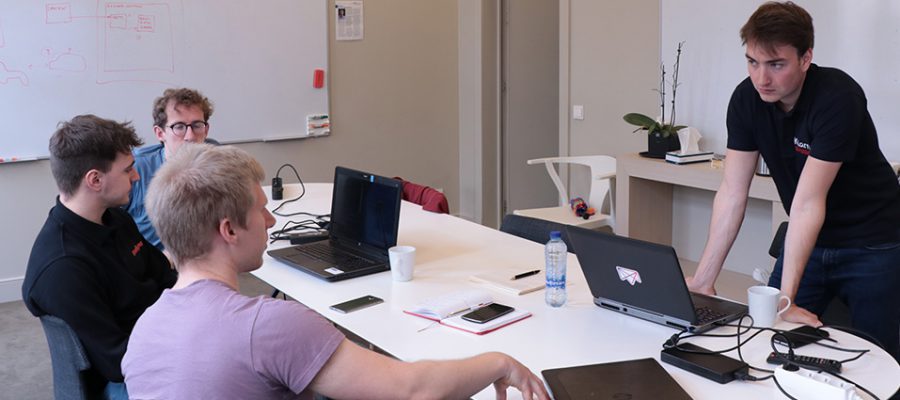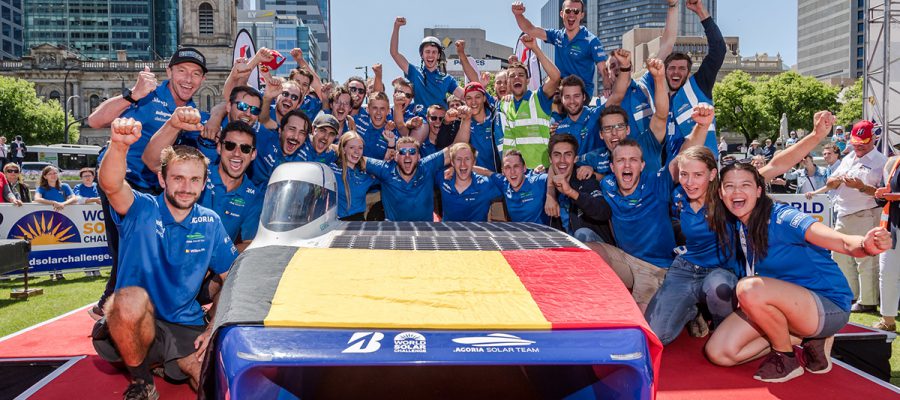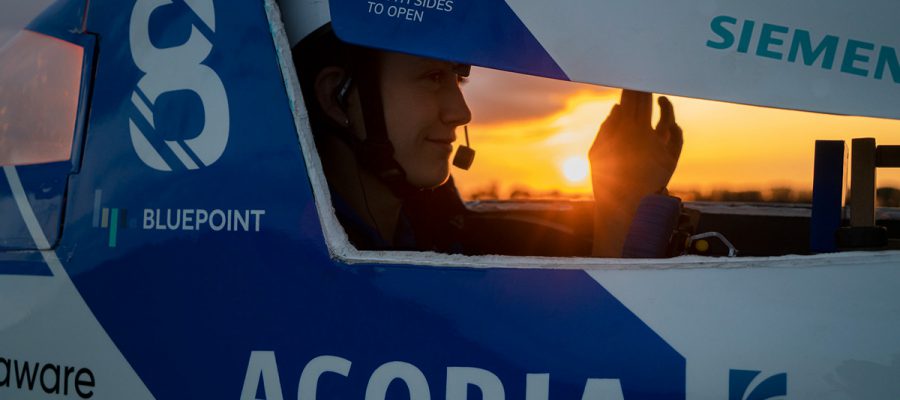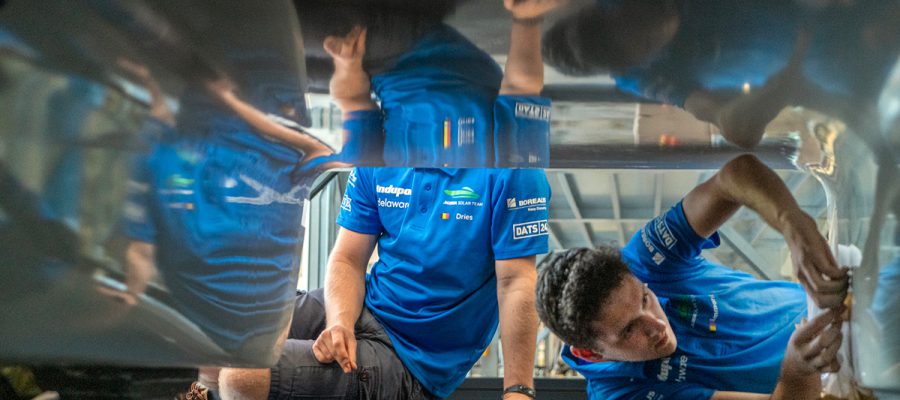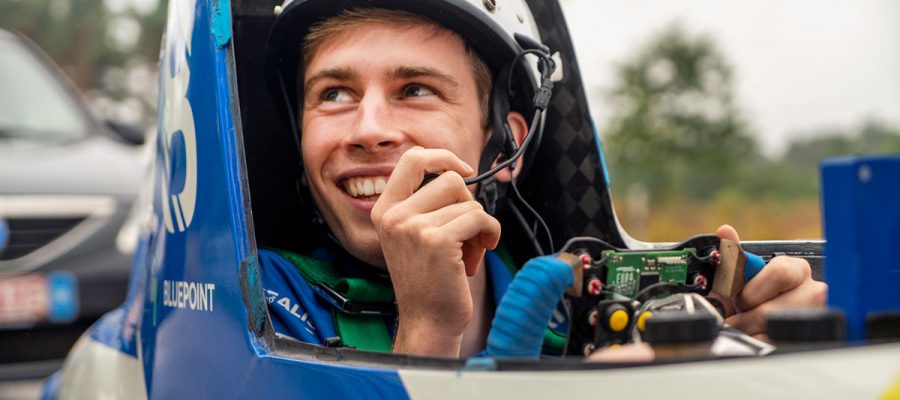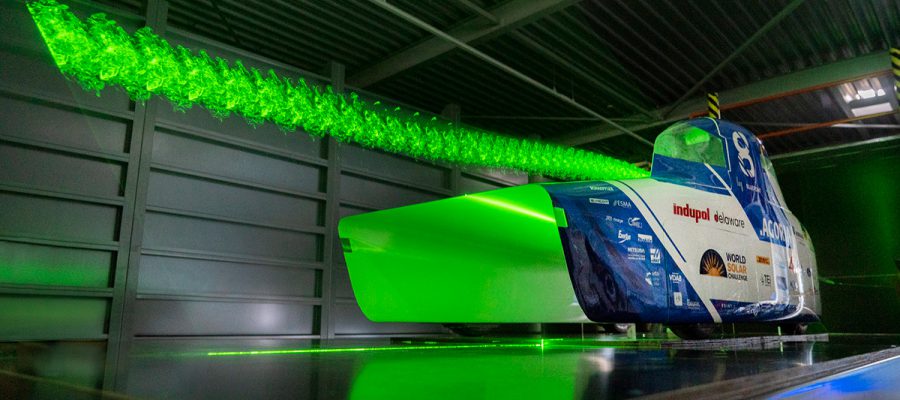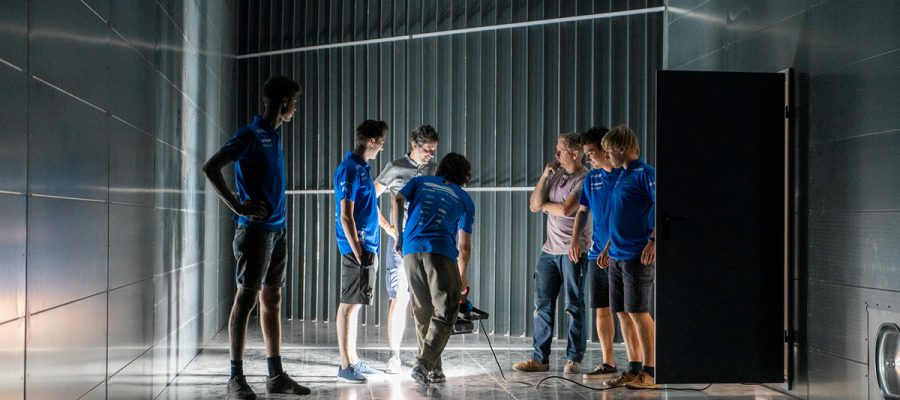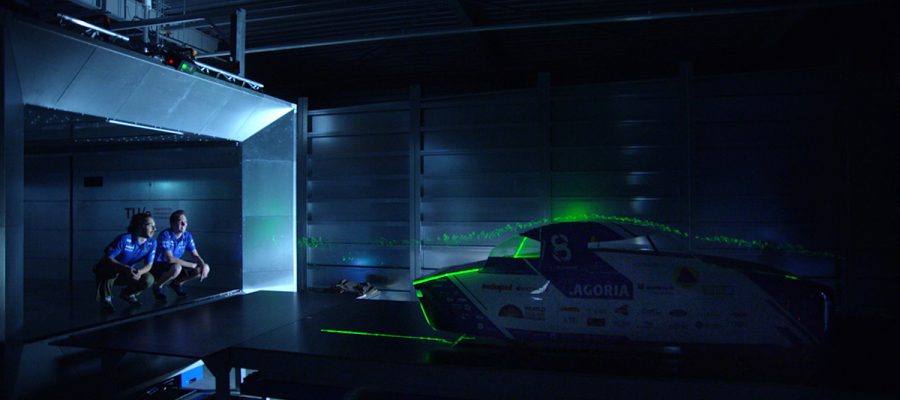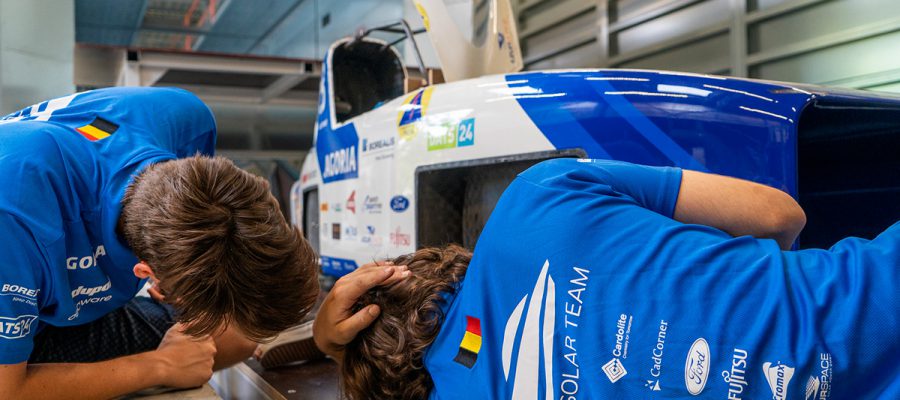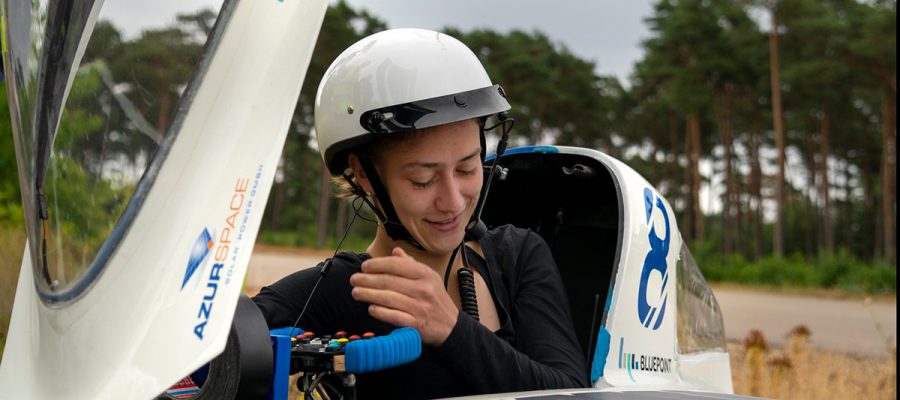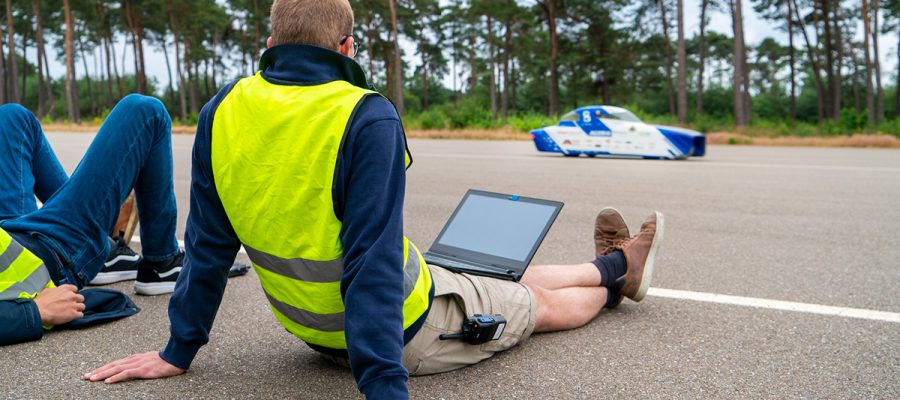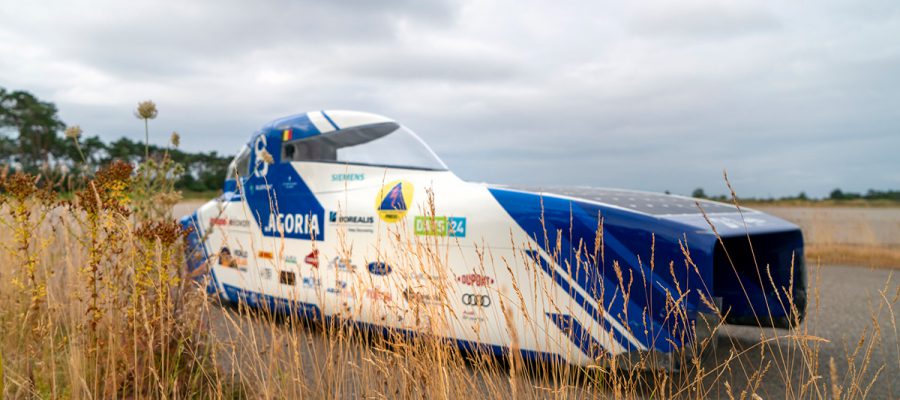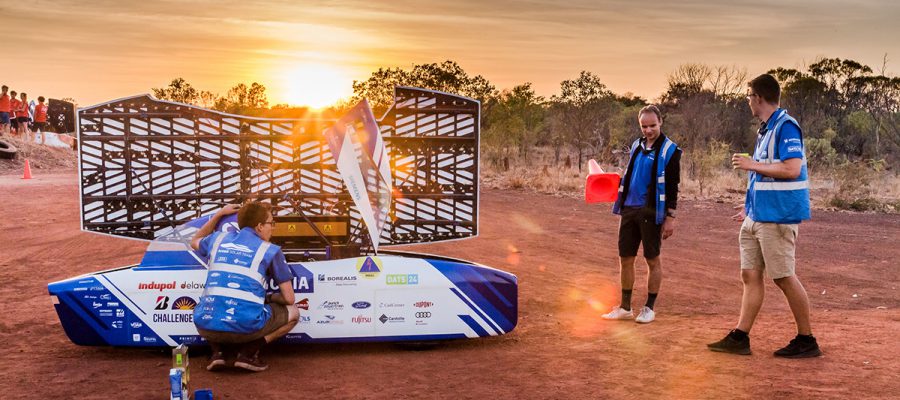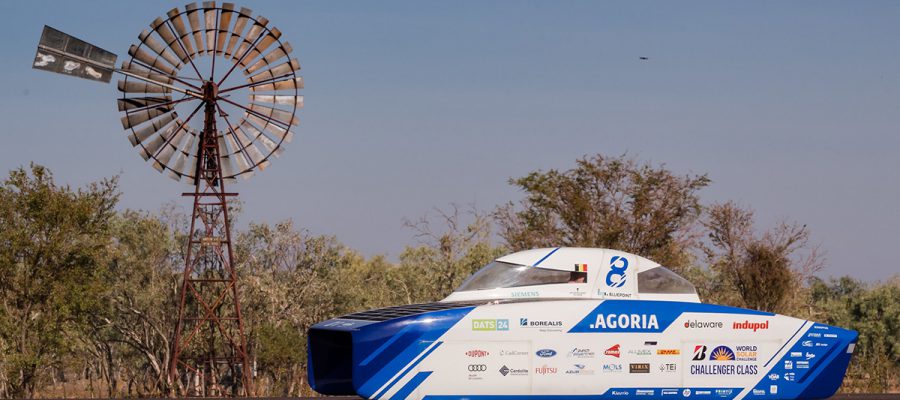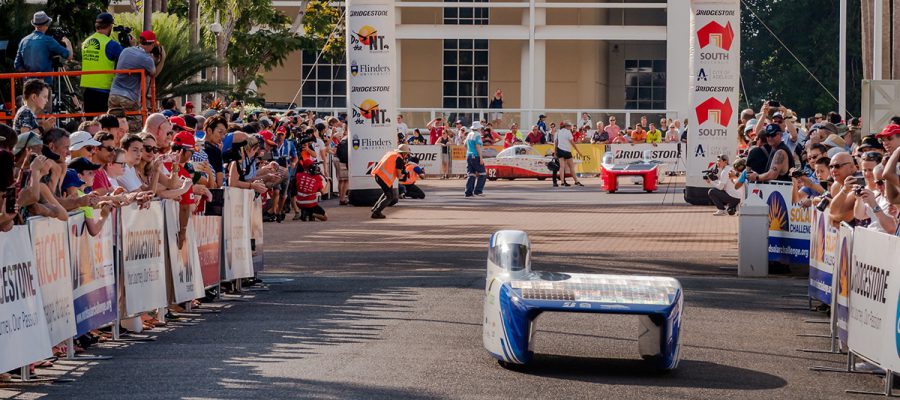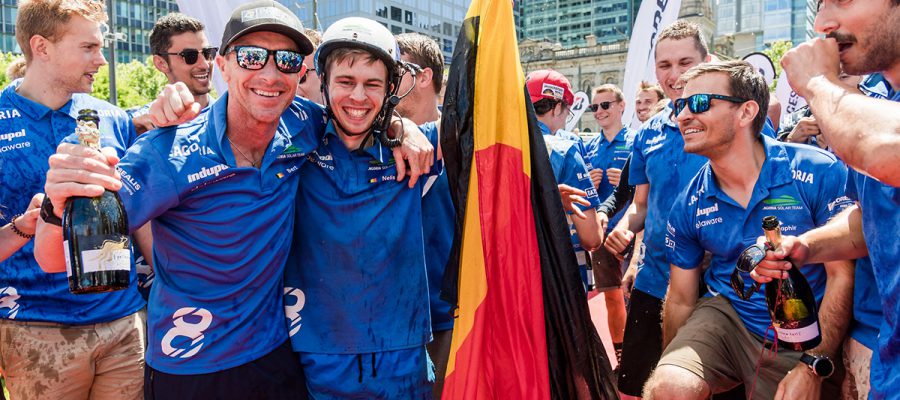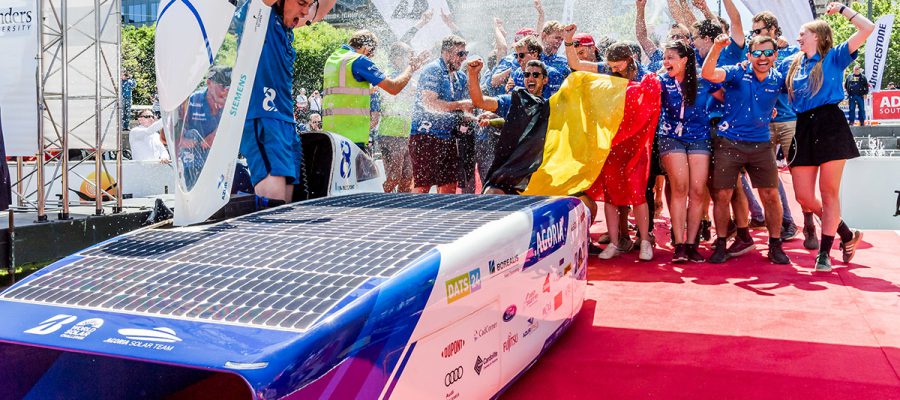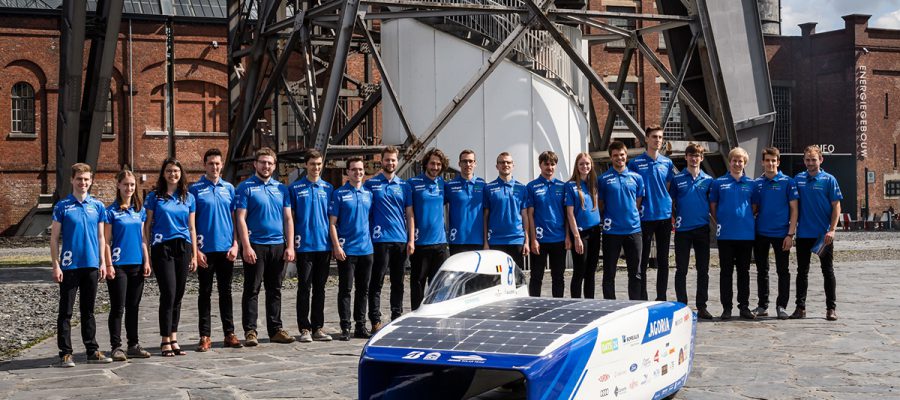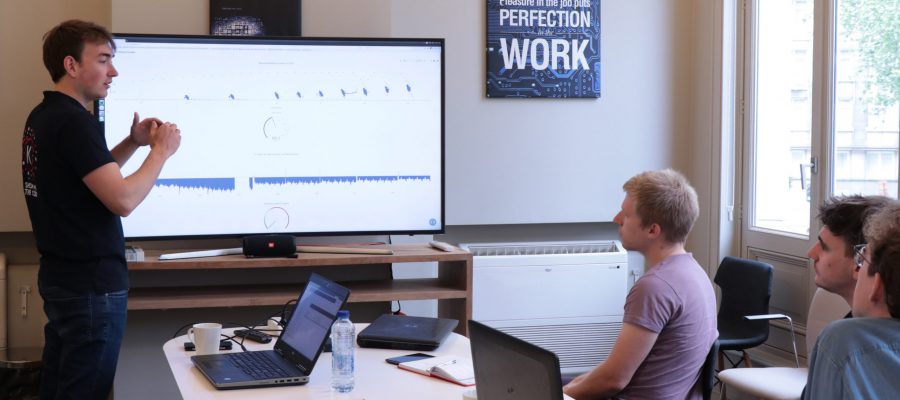Solar Team is a Belgian team consisting of 20 engineering students from KU Leuven, competing to build the best and most innovative solar car for the World Solar Challenge in Australia.
As every customer story is unique, Klarrio hosted several meetings with Solar Team to have a deep understanding of their current workflow, methodology and future ambitions. The focus during these talks was the process of live data capture during testruns and the processing of testrun data to develop models that allow shaping an optimal race strategy.
In agreement with Solar Team, Klarrio put forward action points that define the necessary steps of their digital transformation in order to boost Solar Team’s current workflow of data processing and race strategy determination.
Digital Transformation
What we do
1. Development of a Data Processing Pipeline
This custom-built data processing pipeline was created to combine historical, static and live data into valuable output during testruns and races.
A first process captures live test data to make it available for historical and live analysis further down the pipeline.
One of the other pipeline building blocks is a data cleaning process in which (live and historical) testrun data is cleaned and restructured into a unified data format that allows easy data processing.
Another process joins the different datastreams with static data (aerodynamic wind tunnel tests and CAD simulations) in order to calculate KPIs on the fly.
Besides a unified data processing pipeline, Klarrio wants to assure that future car sensors and/or different live data sources are easily coupled to the new data pipeline.
2. Future oriented approach
On the ingest layer of the data processing pipeline, Klarrio implemented an MQTT broker such that all live sensor data is residing on that messaging layer. In the future, new additional sensors can now be coupled to the pipeline by publishing their data onto a specific MQTT topic.
Klarrio believes that a future oriented data approach does not cease with data engineering; also upcoming data science aspirations are planned. Consequently, to develop new analytical models beyond the current scope, new sets of data need to be collected. Therefore custom data scrapers were implemented to collect different sets of weather data: weather forecasts and satellite imagery.
3. Data science facilitating tools
The data processing pipeline is the backbone providing insights into different race KPIs to determine an optimal race strategy. Defining this optimal race strategy is based on an iterative process. To facilitate this iterative process a replay functionality was added as a service to the data processing pipeline. Furthermore, this replay functionality is helpful when the race strategist wants to train with the provided tools to prepare for upcoming races. The race strategies are based on machine learning models. Therefore this pipeline has a functionality to easily swap (new) trained models into production.
4. Visualization
To visualize different race KPIs and play with (new) trained AI models, an interactive dashboard was created.
Social Media Dashboard
As Solar Team engages with a variety of partners and want to keep track of competitors’ realizations, Klarrio provided access to a live personalized social media dashboard. This streaming dashboard allows Solar Team to have a bird’s-eye view on the relevant media (articles, videos, tweets, …) that covers their partners and competing teams. Those insights can be used to finetune marketing strategies.
Architecture
The data processing pipeline buildup as well as the social media dashboard service, all consist of small microservices which are based on open source software. Those microservices are containerized and put into production.
